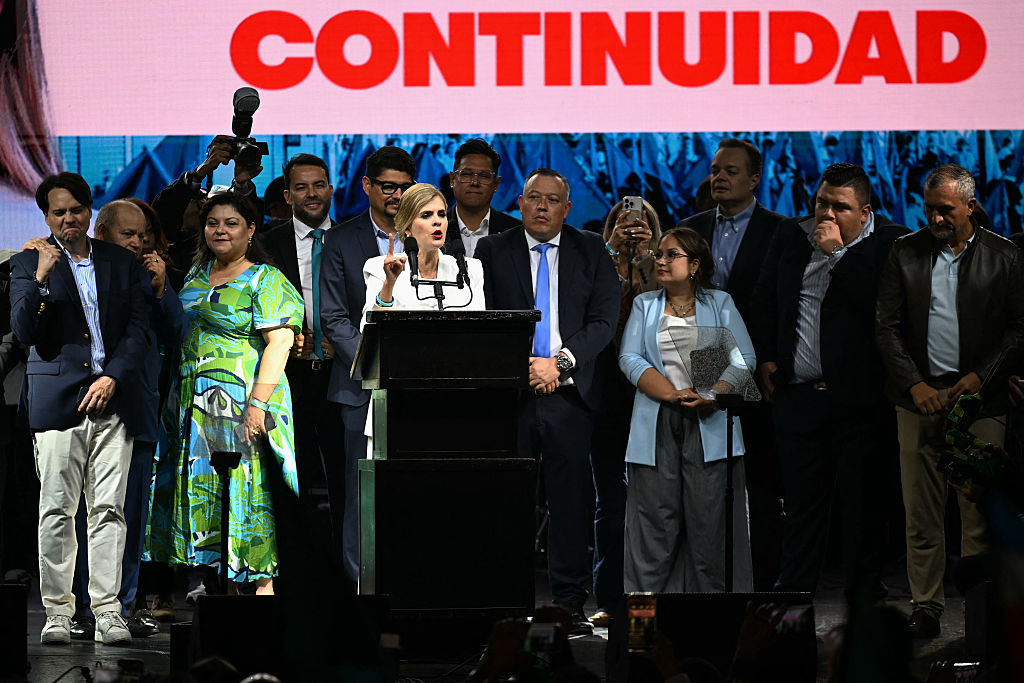Brazil\'s municipal elections: winners, losers, and the prospects for 2006
Brazil\'s municipal elections: winners, losers, and the prospects for 2006
In politics, the interpretation of facts is often more consequential than the facts themselves. Many political pundits who had hailed the PT as the undisputed winner in the first round of Brazil’s municipal elections did an abrupt about face as soon as the run-off results started streaming in. Now they believe that the 2006 general elections will be polarized between the PT and the PSDB. They may be disappointed again. The only certainty about the next presidential succession is that the government will remain divided.
Admittedly, it is not easy to decide which party came out on top in Brazil’s mid-term elections. Candidates for mayor and legislators in municipal assemblies vied for office in 5,562 local races. (Municipalities with more than 200,000 registered voters also held a run-off election if none of the contenders garnered a majority in the first round.) However, the consensus in political circles was that the PT had pulled off a major victory in the first round. The party won the lion’s share of the vote (16.3 million), doubled its number of mayors, and took six state capitals.
But the party's victory lost most of its luster in the run-off phase, not least because the PT was routed in all southern state capitals, while also losing Belém in the North and Goiânia in the Center-West. The most emblematic losses, however, were in São Paulo, Brazil’s largest city, and Porto Alegre, a political showcase where the PT had reigned for 16 years. The polarization between the PT and the PSDB reached fever pitch in the highly charged run-off contest in São Paulo. There, the PSDB candidate José Serra surged to a convincing victory on October 31, besting the incumbent PT mayor Marta Suplicy 55% to 45%.
After suffering severe defeats in 2000 and 2002, the PSDB has recovered. The party obtained 15.7 million votes in the first round, only 600,000 fewer than the PT. Although it fell short of sweeping victories in the state capitals, the party won 870 city halls and defeated the PT in several run-off contests, including those in São Paulo and Curitiba.
Major wins in key urban areas
Overall, however, both the PT and the PSDB scored major wins in key urban areas. In the 252 Brazilian cities with more than 100,000 registered voters, the PT managed to elect 50 mayors, followed closely by the PSDB which elected 45. Between them, these two parties will govern nearly one third of Brazil’s population and 14 of the 26 state capitals.
As to the rest of the party system, the PMDB weighed in at third, with 14.2 million votes, taking the largest number of mayoralties and city council seats. The PFL came in fourth, with 11.2 million votes, while the PP finished in fifth place with 6.0 million. Then came the PDT (5.5 million), the PTB (5.2 million), the PL (5.0 million), the PPS (4.9 million), and the PSB (4.4 million). A total of 17 other parties also participated, taking a total of 5.3 million votes (see table below).
Trends in electoral returns since the 2000 municipal races indicate the changing fortunes of the major parties. The advance of the PT is noteworthy. Four years ago, the four biggest parties (PSDB, PMDB, PFL and PT) took between 12 to 13 million votes a piece. In 2004, the balance went sharply askew, with the PFL pulling in five million votes less than the PT level. Although the PFL managed to reelect Rio de Janeiro mayor Cesar Maia in the first round, it lost 13% of the votes and 23% of the mayors it had in 2000. The PSDB and the PMDB also elected fewer mayors (16% and 13%, respectively), even though they added to their total vote tally with victories in larger municipalities. In general, parties backing the government were strengthened, except for the PP and the PTB, which shed both votes and mayoralties.
Finally, two parties that have all but quit Lula’s governing coalition - the PPS and the PDT – logged outstanding performances in large cities. The PDT held its own nationwide and even managed to elect the mayors of three capital cities: Salvador, São Luis, and Maceió. The PPS scored a major victory in Porto Alegre and also elected the mayor of another capital city, Boa Vista. Indications are that these two parties are planning on merging. Should they join forces, the new party will be nearly as strong as the PFL.
Unexpected outcomes
This year’s municipal elections also marked some unexpected outcomes that suggest important changes may be in store for the future control of state governments. In most states, incumbent governors saw their hand-picked candidates defeated in the mayoralty races in state capitals and other major cities. The exception was São Paulo Governor Geraldo Alkmin, who not only obtained important victories in the interior but also saw his nominee, the former health minister José Serra, win the run-off in the state capital.
In Rio de Janeiro, the candidate chosen by Governor Rosinha Garotinho (PMDB) came in third while incumbent mayor Cesar Maia (PFL) was reelected outright. In Recife, the incumbent mayor João Paulo (PT) also won in the first round and will become the chief source of opposition against Pernambuco Governor Jarbas Vasconcellos (PMDB). In Belo Horizonte, Palmas, Goiânia, Cuiabá, Campo Grande, Fortaleza and Teresina, governors also saw their candidates knocked out in the elimination round of voting, Oct 31.
The election results do not augur well for the PT. The party grew in the Amazon region and strengthened its hand in the Northeast but lost ground in the South and the Southeast, even though it carved out for itself an important niche in Belo Horizonte. In 2000, 70% of the 181 mayors elected by the PT were from the South and the Southeast. Now, 62% of the 411 elected mayors are from the Northeast, North, and Center-West. The party also stumbled in the interior of São Paulo, the country's biggest state. The PSDB, on the other hand, scored well in that region.
In addition, the PT's advance stalled in the South. The defeat in Porto Alegre, a city that has been an international symbol of PT dominance for almost two decades, was a crushing blow for the party. Among other major cities in Rio Grande do Sul, the PT lost in Canoas, Caxias do Sul, Novo Hamburgo and Pelotas. In Santa Catarina, the party did not even make it to the run-off in Florianópolis, Joinville and Blumenau. In Paraná, it was defeated in Curitiba, Maringá and Ponta Grossa. Because the South and Southeast are critical in any presidential contest, these relatively negative results for the PT may spell trouble for president Lula's reelection prospects in 2006.
Nor did it help that the PT failed to make any major inroads in the country's vast interior. The PT fared well in the big cities and the state capitals but its performance was especially modest in small and medium-sized towns. Significantly, the PT lost in Guaribas and Acauã, in southern Piaui, two towns that had become the icons for the government's signature anti-hunger program. These setbacks will have political resonance: since it will not come to the 2006 election armed with a nationwide network, the PT will have to seek alliances with grass roots parties such as the PMDB.
As the PT combed election results for lessons, it laid blame on the usual culprits. In some cases, it was quick to decry rivals for stoking old fears of a return to the PT’s authoritarian inclinations. At other times, blame fell to the Lula administration for failing to deliver on its campaign pledges.
In fact, some polls detected a tide of anti-PT feelings among big-city middle class voters. The aggressive nature of the PT campaigns alienated voters in many places. To wit: president Lula himself was punished by a fine for using his prerogatives to ask votes for Marta Suplicy. But a more immediate reason for the defeats was the PT’s unwillingness to enter political alliances with coalition allies in places where it felt it could go it alone, as in São Paulo and Porto Alegre.
Polarization trend
Conventional wisdom says that municipal elections do not determine the presidential succession. However, the opposition has taken new heart and José Serra’s victory in the state capital will pave the way for the PSDB state governor Geraldo Alckmin to stand in the 2006 presidential race. Mid-term elections also help define new party alliances. Therefore, many observers have predicted that the polarization trend will be exacerbated in 2006, pitting the PT and coalition allies PC do B, PL, PTB and PSB against the oppositionist PSDB and PFL, while each block seeks to attract the PMDB, PP, PDT and PPS to their own camp.
Polarization should be seen as a political strategy rather than the expression of a national divide. Although there are undeniable irritants in the relationship between the PT and the PSDB, it is hard to ignore their many points of convergence, more apparent now after the PT embraced the same macroeconomic discipline championed by the PSDB.
The fact is that the two-round election (the so-called ballotage system) puts a premium on keeping third parties at bay in the first round in order to reduce uncertainty. If a race is not polarized between two strong opponents from the beginning, all parties, no matter how small, have an incentive to field candidates, in the hope of using their first-round votes as a bargaining chip in the run-off. In other words, the leading parties have a common interest in sustaining the tide toward polarization. In this sense, the PT and the PSDB need each other to succeed.
Recently, Rio de Janeiro mayor elect Cesar Maia argued that the polarization between the PT and the PSDB is strictly a São Paulo phenomenon. Maia's diagnosis of the uncertainties surrounding the next presidential election is spot on. The PT won the biggest share of the vote, followed by the PSDB, the PMDB, and the PFL. However, if the state of São Paulo is excluded, the winner is the PMDB, with 12.8 million votes, followed by the PT (10.9 million), the PFL (10 million), and the PSDB (8.9 million). The overarching problem for the PMDB is the lack of a clear sense of what the party stands for.
Conclusion
President Lula is likely to enter the presidential race as the odds-on favorite, provided he improves his government's administrative abilities and keeps the economy strong over the next two years. However, this year's elections suggest it will be difficult for the PT to dominate in 2006 as the PMDB did in 1986. That year, the PMDB won every single governorship except Sergipe and elected overwhelming majorities both to the Chamber of Deputies and the Senate. Even if president Lula is reelected, a divided government is likely to persist as the basic pattern for Brazil's politics.
*Amaury de Souza is a senior partner at MCM Associated Consultants and Techne Informática e Recursos Humanos Ltda., in São Paulo and Rio de Janeiro.








